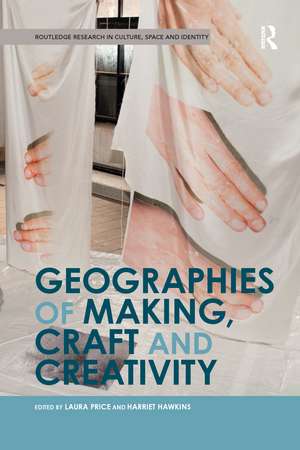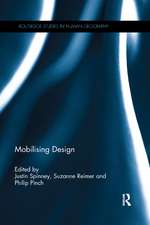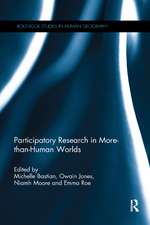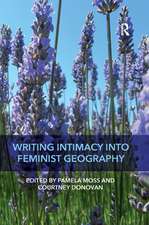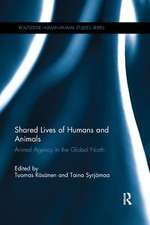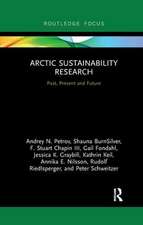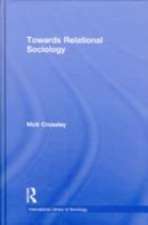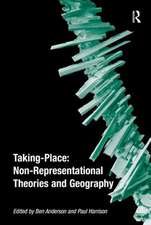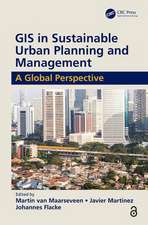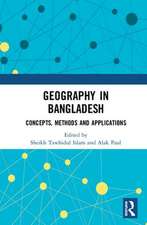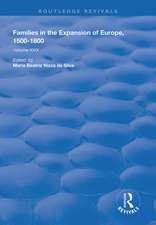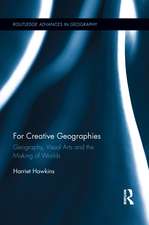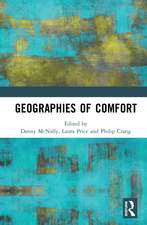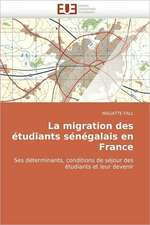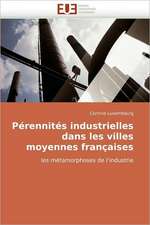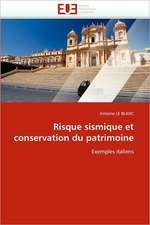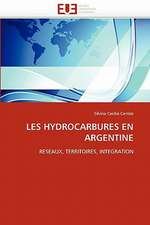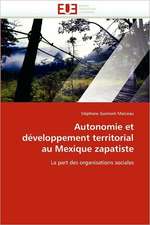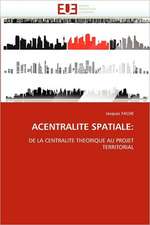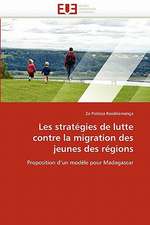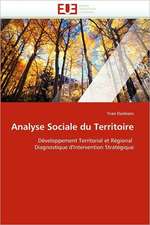Geographies of Making, Craft and Creativity: Routledge Research in Culture, Space and Identity
Editat de Laura Price, Harriet Hawkinsen Limba Engleză Paperback – 30 iun 2020
This book offers a forum to consider future directions for the field of geographies of making, craft and creativity. It will be of great interest to creative and cultural geographers, as well as those studying the arts, culture and sociology.
| Toate formatele și edițiile | Preț | Express |
|---|---|---|
| Paperback (1) | 389.38 lei 6-8 săpt. | |
| Taylor & Francis – 30 iun 2020 | 389.38 lei 6-8 săpt. | |
| Hardback (1) | 1002.46 lei 6-8 săpt. | |
| Taylor & Francis – 6 apr 2018 | 1002.46 lei 6-8 săpt. |
Din seria Routledge Research in Culture, Space and Identity
-
 Preț: 296.00 lei
Preț: 296.00 lei -
 Preț: 288.42 lei
Preț: 288.42 lei -
 Preț: 326.78 lei
Preț: 326.78 lei - 5%
 Preț: 308.49 lei
Preț: 308.49 lei - 16%
 Preț: 312.43 lei
Preț: 312.43 lei - 12%
 Preț: 325.34 lei
Preț: 325.34 lei -
 Preț: 389.38 lei
Preț: 389.38 lei -
 Preț: 389.66 lei
Preț: 389.66 lei -
 Preț: 389.38 lei
Preț: 389.38 lei -
 Preț: 389.38 lei
Preț: 389.38 lei -
 Preț: 389.66 lei
Preț: 389.66 lei -
 Preț: 389.38 lei
Preț: 389.38 lei -
 Preț: 379.48 lei
Preț: 379.48 lei -
 Preț: 376.22 lei
Preț: 376.22 lei -
 Preț: 354.78 lei
Preț: 354.78 lei -
 Preț: 445.38 lei
Preț: 445.38 lei -
 Preț: 360.70 lei
Preț: 360.70 lei - 18%
 Preț: 1000.27 lei
Preț: 1000.27 lei - 18%
 Preț: 1000.27 lei
Preț: 1000.27 lei -
 Preț: 389.66 lei
Preț: 389.66 lei - 18%
 Preț: 999.02 lei
Preț: 999.02 lei - 9%
 Preț: 935.31 lei
Preț: 935.31 lei - 9%
 Preț: 936.26 lei
Preț: 936.26 lei
Preț: 389.38 lei
Nou
Puncte Express: 584
Preț estimativ în valută:
74.53€ • 80.98$ • 62.65£
74.53€ • 80.98$ • 62.65£
Carte tipărită la comandă
Livrare economică 22 aprilie-06 mai
Preluare comenzi: 021 569.72.76
Specificații
ISBN-13: 9780367591700
ISBN-10: 0367591707
Pagini: 260
Dimensiuni: 156 x 234 x 10 mm
Greutate: 0.45 kg
Ediția:1
Editura: Taylor & Francis
Colecția Routledge
Seria Routledge Research in Culture, Space and Identity
Locul publicării:Oxford, United Kingdom
ISBN-10: 0367591707
Pagini: 260
Dimensiuni: 156 x 234 x 10 mm
Greutate: 0.45 kg
Ediția:1
Editura: Taylor & Francis
Colecția Routledge
Seria Routledge Research in Culture, Space and Identity
Locul publicării:Oxford, United Kingdom
Cuprins
1: Towards the geographies of making: An introduction 2: Making bodies, making space and making memory in artistic practice 3: Moonraking in Slaithwaite: Making lanterns, making place 4: Modernity, crafts and guilded practices: Locating the historical geographies of 20th century craft organisations 5: Unpicking the material politics of sewing for development: Sex, religion and women’s rights 6: Work, value and space: Three key questions of making for the Anthropocene 7: The science and the art of making: Bartenders, distillers, barbers, and butchers 8: Transient productions; enduring encounters: The crafting of bodies and friendships in the hair salon 9: Entangled corporeality in the making of taxidermy 10: Knitting the atmosphere: Creative entanglements with climate change 11: A sustainable future in the making? The maker movement, the maker-habitus and sustainability 12: Everyday Kintsukuroi: Mending as making 13: Re-lighting the Castle Argyle: Making, restoration, and the biography of an immobile thing 14: Geographies of making: Matter, transformation and care
Notă biografică
Laura Price is a feminist cultural geographer. Her PhD thesis explored the geographies of knitting, gendered creativity and the role of materials in everyday lives. She is currently a writer of education resources at the Royal Geographical Society (with the Institute of British Geographers) where she works with universities, schools and teachers to promote and share geographical learning. She is co-editor of Geographies of Comfort (Routledge, 2018).
Harriet Hawkins is based in the Department of Geography, Royal Holloway, University of London where she works on the geography of art works and art worlds. She is committed to practice-based research and collaboration with artists and arts institutions and organisations. She is author of For Creative Geographies (Routledge, 2013) and Creativity: Live, Work, Create (Routledge, 2016), editor of cultural geographies and founder and co-Director of Royal Holloway, Centre for the GeoHumanities, where she is currently Professor of GeoHumanities.
Descriere
This book brings together cutting-edge research from leading international scholars which explores the geographies of making and craft, and the different understandings of ‘making’. It traces the geographies of making practices from the body, to the workshop and studio, to the wider socio-cultural, economic, institutional and historical contexts
